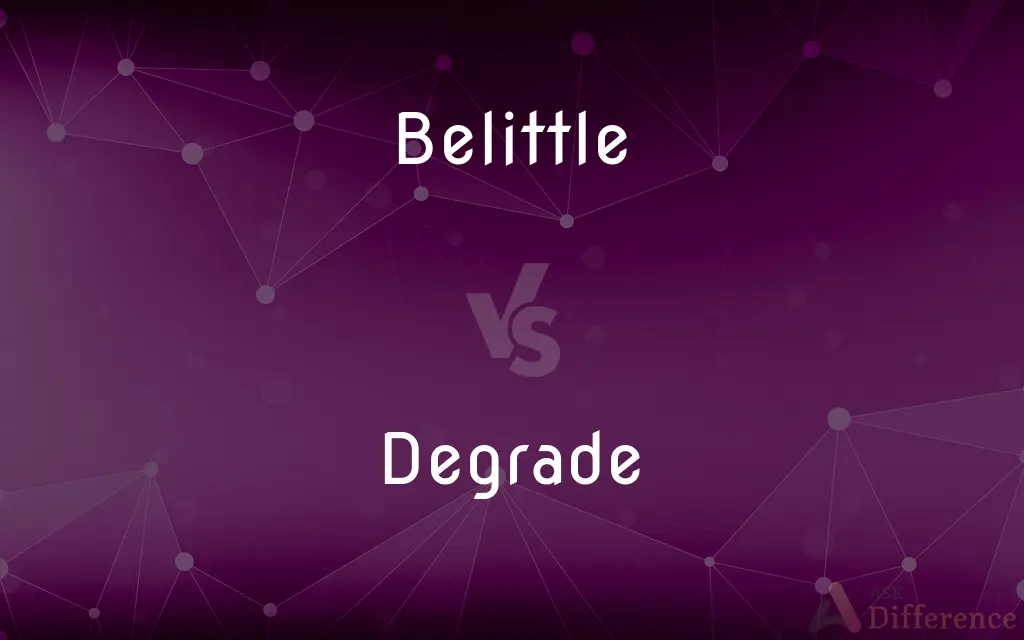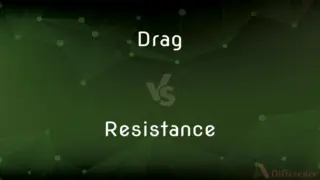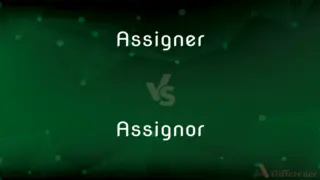Belittle vs. Degrade — What's the Difference?
By Urooj Arif & Fiza Rafique — Updated on April 26, 2024
Belittling involves diminishing someone's perceived worth or importance, often subtly, while degrading refers to treating someone with disrespect or contempt, potentially causing them to feel inferior or ashamed.

Difference Between Belittle and Degrade
Table of Contents
ADVERTISEMENT
Key Differences
Belittling is a verbal action where someone minimizes or trivializes another person's abilities, achievements, or worth, often making them feel less important or capable. On the other hand, degrading involves actions or words that lower a person's dignity or status, often making them feel shame or deep disrespect. While both are negative interactions, degrading is generally more severe and directly impacts a person's self-esteem and respect.
Belittling can be subtle and sometimes even disguised as jokes or backhanded compliments, making it less direct but still hurtful. Whereas, degrading is overt and unmistakably disrespectful, involving harsh criticism, insults, or humiliating situations that clearly express contempt.
In the context of personal relationships, belittling might manifest as repeatedly undermining someone's decisions or opinions, subtly eroding their confidence. On the other hand, degrading behavior in relationships might involve blatant verbal abuse or actions that intentionally make the person feel worthless or despised.
In professional settings, a boss might belittle an employee by consistently dismissing their ideas in meetings, which subtly undermines their professional standing among peers. Conversely, degrading an employee might involve public reprimands, derogatory comments about their capabilities, or demeaning tasks that fall outside professional norms.
Belittling often aims to assert superiority or control by making others feel smaller or less competent, typically through less direct means. Degrading, however, involves a more explicit demonstration of disdain or disrespect, aiming to make someone feel deeply inferior or unworthy through direct and harsh actions.
ADVERTISEMENT
Comparison Chart
Definition
Minimizing someone's worth subtly
Overtly lowering someone's dignity
Intensity
Generally subtle
More severe and direct
Typical Expression
Undermining comments, backhanded compliments
Insults, humiliation, explicit disrespect
Impact on Self-Esteem
Indirectly erodes confidence
Directly causes shame and loss of dignity
Common Contexts
Personal interactions, professional settings
Abusive relationships, hostile environments
Compare with Definitions
Belittle
Can occur in both personal and professional contexts.
The manager's habit of belittling staff morale by questioning their competence.
Degrade
To cause someone to feel ashamed or dishonored.
The public reprimand was not just harsh, it was degrading.
Belittle
To make someone or something seem less important.
She belittled his achievements, calling them pure luck.
Degrade
Associated with more severe interpersonal abuse.
The abusive boss used degrading tactics to intimidate his employees.
Belittle
Often manifests as subtle or indirect negativity.
Their jokes belittled his efforts, making them seem insignificant.
Degrade
Explicitly harsh and demeaning treatment.
Using degrading language in any setting can deeply affect someone’s mental health.
Belittle
To trivialize or diminish someone's ideas.
He constantly belittled her suggestions during meetings, which discouraged her from speaking up.
Degrade
To treat someone with contempt, reducing their dignity.
The insults he hurled at her during the argument were degrading.
Belittle
To treat or regard someone as inferior.
By belittling her in front of her colleagues, he undermined her professional credibility.
Degrade
Actions or words that significantly lower someone's self-esteem.
His degrading comments about her work left her feeling worthless.
Belittle
Dismiss (someone or something) as unimportant
She belittled Amy's riding skills whenever she could
Degrade
To lower in quality or value; make inferior or less valuable
Land that was degraded by overgrazing.
A virus that degrades the computer's performance.
Belittle
To represent or speak of as unimportant or contemptible
A person who belittled our efforts to do the job right.
Degrade
To lower in dignity; dishonor or disgrace
Seemed to feel that he was degrading himself in accepting the invitation.
Belittle
To cause to seem little or smaller than something else
"Away on the very edge of the cliffs, close under the sky, were pines, belittled by distance" (Stewart Edward White).
Degrade
To reduce in grade, rank, or status; demote.
Belittle
(transitive) To knowingly say that something is smaller or less important than it actually is, especially as a way of showing contempt or deprecation.
Don't belittle your colleagues.
Degrade
(Geology) To lower or wear away by erosion or weathering.
Belittle
To make little or less in a moral sense; to speak of in a depreciatory or contemptuous way.
Degrade
To cause (an organic compound) to undergo degradation.
Belittle
Belittle;
Don't belittle his influence
Degrade
To fall to a lower rank or status.
Belittle
Express a negative opinion of;
She disparaged her student's efforts
Degrade
To undergo degradation; decompose
A chemical that degrades rapidly.
Belittle
Lessen the authority, dignity, or reputation of;
Don't belittle your colleagues
Degrade
(transitive) To lower in value or social position.
Fred degrades himself by his behaviour.
Degrade
To reduce in quality or purity.
The DNA sample has degraded.
Degrade
To reduce in altitude or magnitude, as hills and mountains; to wear down.
Degrade
To reduce from a higher to a lower rank or degree; to lower in rank; to deprive of office or dignity; to strip of honors; as, to degrade a nobleman, or a general officer.
Prynne was sentenced by the Star Chamber Court to be degraded from the bar.
Degrade
To reduce in estimation, character, or reputation; to lessen the value of; to lower the physical, moral, or intellectual character of; to debase; to bring shame or contempt upon; to disgrace; as, vice degrades a man.
O miserable mankind, to what fallDegraded, to what wretched state reserved!
Yet time ennobles or degrades each line.
Her pride . . . struggled hard against this degrading passion.
Degrade
To reduce in altitude or magnitude, as hills and mountains; to wear down.
Degrade
To degenerate; to pass from a higher to a lower type of structure; as, a family of plants or animals degrades through this or that genus or group of genera.
Degrade
Reduce the level of land, as by erosion
Degrade
Reduce in worth or character, usually verbally;
She tends to put down younger women colleagues
His critics took him down after the lecture
Degrade
Lower the grade of something; reduce its worth
Common Curiosities
Can belittling be unintentional?
Yes, sometimes individuals might belittle others without realizing the impact of their words or actions.
Can belittling escalate to degrading behavior?
Yes, if belittling behaviors are not addressed, they can escalate into more overtly degrading actions.
What is the main difference between belittling and degrading?
Belittling subtly diminishes someone’s value, while degrading overtly lowers their dignity.
How can belittling affect workplace dynamics?
It can undermine professional relationships and lower morale by making individuals feel undervalued.
Is degrading always intentional?
Degrading actions are usually intentional as they involve clear disrespect or humiliation.
What role does culture play in perceptions of belittling and degrading?
Cultural norms and values can influence what is considered belittling or degrading, with some cultures being more sensitive to certain behaviors.
What are the long-term effects of degrading treatment?
Long-term exposure to degrading treatment can lead to severe psychological issues, including depression and low self-esteem.
What are the psychological impacts of recurrent belittling?
Continuous belittling can lead to anxiety, low self-worth, and depression.
Is it possible to repair relationships after belittling or degrading incidents?
With open communication, sincere apologies, and changed behavior, it’s possible to mend relationships.
How can leadership styles influence the prevalence of belittling or degrading behaviors?
Leadership styles that emphasize respect and inclusivity tend to discourage such behaviors, whereas authoritarian or neglectful styles may inadvertently promote them.
How should one respond to being belittled or degraded?
It’s important to address the behavior directly with the person involved or seek support from others, such as HR in a workplace setting.
Are there specific environments where degrading behavior is more common?
Degrading behavior may be more prevalent in highly competitive or high-stress environments where aggressive behaviors are unchecked.
How do legal systems view degrading treatment?
Degrading treatment can fall under harassment or abuse in legal contexts, with specific laws providing protection against it.
What strategies can help individuals cope with feeling belittled or degraded?
Seeking counseling, building self-esteem through positive affirmations, and establishing strong support networks are effective strategies.
How can organizations prevent belittling and degrading behaviors?
Establishing clear policies against such behaviors, promoting a positive workplace culture, and providing training on respectful communication can help.
Share Your Discovery

Previous Comparison
Drag vs. Resistance
Next Comparison
Assigner vs. AssignorAuthor Spotlight
Written by
Urooj ArifUrooj is a skilled content writer at Ask Difference, known for her exceptional ability to simplify complex topics into engaging and informative content. With a passion for research and a flair for clear, concise writing, she consistently delivers articles that resonate with our diverse audience.
Co-written by
Fiza RafiqueFiza Rafique is a skilled content writer at AskDifference.com, where she meticulously refines and enhances written pieces. Drawing from her vast editorial expertise, Fiza ensures clarity, accuracy, and precision in every article. Passionate about language, she continually seeks to elevate the quality of content for readers worldwide.














































